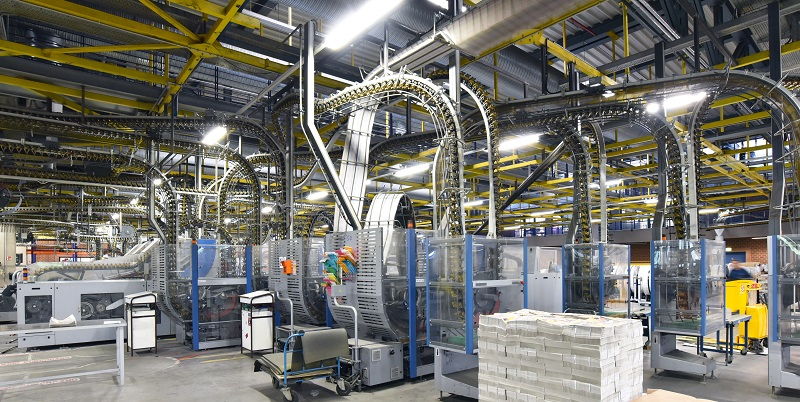In today’s fast-paced manufacturing environment, maximizing efficiency while maintaining control over the production schedule is crucial for businesses looking to thrive. One innovative solution that has revolutionized production scheduling is MxAPS (Maximized Automated Production Scheduling). This cutting-edge tool strikes the perfect balance between automation and control, empowering businesses to streamline their manufacturing processes and meet customer demands seamlessly.
Automation with Manual Adjustments
With MxAPS, businesses can harness the power of automation in production scheduling. The tool is designed to autonomously manage and optimize scheduling, taking into account various parameters such as machine availability, resource capacity, and production goals. By automating the scheduling process, MxAPS eliminates the need for manual intervention in routine scheduling tasks, freeing up valuable time for production managers. However, what sets MxAPS apart is the flexibility it offers users to make manual adjustments when necessary. This combination of automation and control ensures that businesses have the final say in their production schedules while benefiting from the efficiency of automated scheduling processes.
Prioritization and optimization
MxAPS utilizes advanced algorithms to prioritize production orders based on due dates, priority levels, and sequencing rules. By doing so, it optimizes production schedules for maximum efficiency. With MxAPS, businesses can avoid bottlenecks, reduce idle time, and minimize the risk of missed deadlines. By consistently meeting production targets and delivering punctually, companies can enhance their reputation and build stronger relationships with their customers, ultimately leading to increased customer satisfaction.
Inventory management
Accurate scheduling and sequencing of production orders is vital for effective inventory management. MxAPS excels in this area by minimizing excess inventory levels. By aligning production schedules with actual demand, MxAPS ensures that businesses maintain optimal inventory levels, minimizing the risk of overstocking or shortages. This not only enhances efficiency but also leads to significant cost savings by reducing carrying costs, obsolescence, and waste.
Minimizing downtime and maximizing throughput
Downtime and inefficient changeover processes can significantly impact production efficiency. MxAPS addresses this challenge by minimizing downtime and reducing setup and changeover times. By efficiently scheduling production orders, MxAPS ensures that equipment remains in continuous operation, leading to maximum throughput. The tool optimizes machine allocation, minimizing idle time and reducing the overall production cycle. As a result, businesses can maximize their output, meet higher demand levels, and achieve higher profitability.
Improved customer satisfaction
MxAPS empowers businesses to schedule production orders based on real-time demand and delivery requirements. By aligning production with customer requests, businesses can improve their overall customer satisfaction. On-time deliveries foster trust and reliability, securing long-term relationships. Moreover, the tool allows for quick response and adaptability in the case of changing customer requirements, enabling businesses to address short-notice orders and variations more effectively.
Equipment Maintenance and Minimizing Disruptions
Effective equipment maintenance is essential for minimizing disruptions and ensuring the smooth execution of the production schedule. MxAPS allows for scheduling preventive maintenance tasks, ensuring that equipment remains in optimal condition. By proactively managing equipment downtime, MxAPS minimizes disruptions to the production schedule, preventing unexpected breakdowns and delays. This guarantees the uninterrupted flow of production, ensuring consistent output and customer satisfaction.
Scenario Simulation and Decision Making
MxAPS empowers businesses with the ability to simulate various scenarios and evaluate the impact of schedule changes. By using this tool, companies can gain valuable insights into how different parameters, such as demand fluctuations or resource availability, can affect the production schedule. Armed with this information, businesses can make informed decisions to improve operational efficiency and optimize resource allocation. The ability to assess different scenarios before implementation allows companies to reduce risks and make adjustments that positively impact their bottom line.
Routing optimization
MxAPS optimizes routing sequences and manages complex routing processes seamlessly. By considering various parameters, such as distance, capacity, and machine capabilities, the tool ensures that the most efficient and cost-effective routing is implemented. This optimization reduces the overall production cycle time, minimizes transportation costs, and improves the utilization of resources. By efficiently routing materials and products through the production process, businesses can enhance productivity and delivery performance.
Balancing Automatic and Manual Rescheduling
One prominent feature of MxAPS is its ability to provide a balanced combination of automatic and manual rescheduling. While the tool excels in automated scheduling processes, it also recognizes the importance of human intervention when necessary. MxAPS allows businesses to easily adjust schedules in response to unanticipated changes in demand or resource availability. This flexibility ensures that businesses can swiftly adapt to evolving market conditions and remain agile in their operations.
In the competitive landscape of modern manufacturing, achieving efficiency and maintaining control in production scheduling is essential. MxAPS provides businesses with a powerful tool that strikes the perfect balance between automation and control, revolutionizing production scheduling. By leveraging its benefits in prioritization, optimization, inventory management, downtime reduction, customer satisfaction, equipment maintenance, scenario simulation, routing optimization, and rescheduling capabilities, businesses can streamline their operations, minimize costs, and provide remarkable service to their customers. Embracing MxAPS is the key to maximizing efficiency and control, securing a competitive advantage, and thriving in the ever-evolving world of manufacturing.

